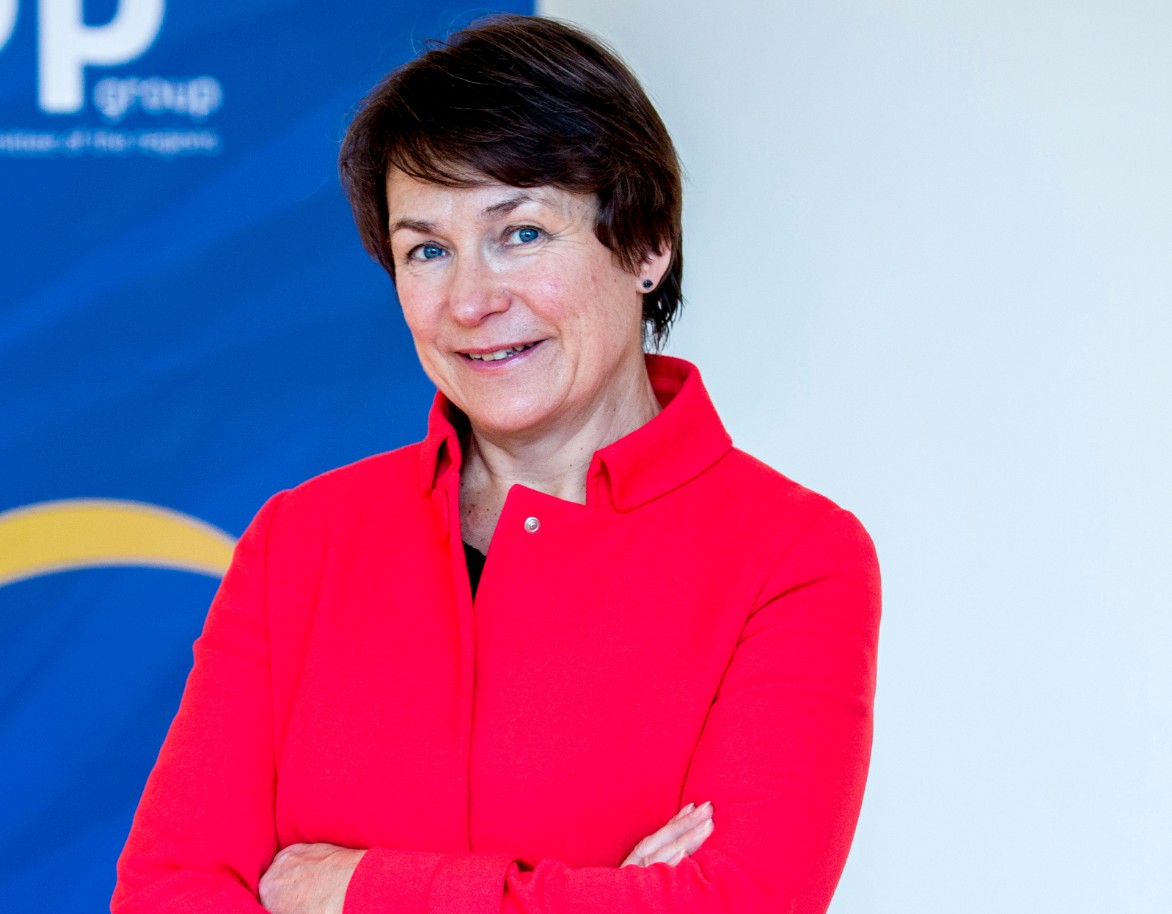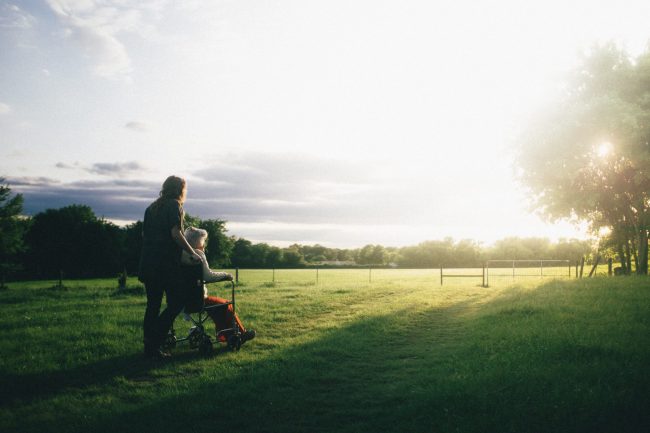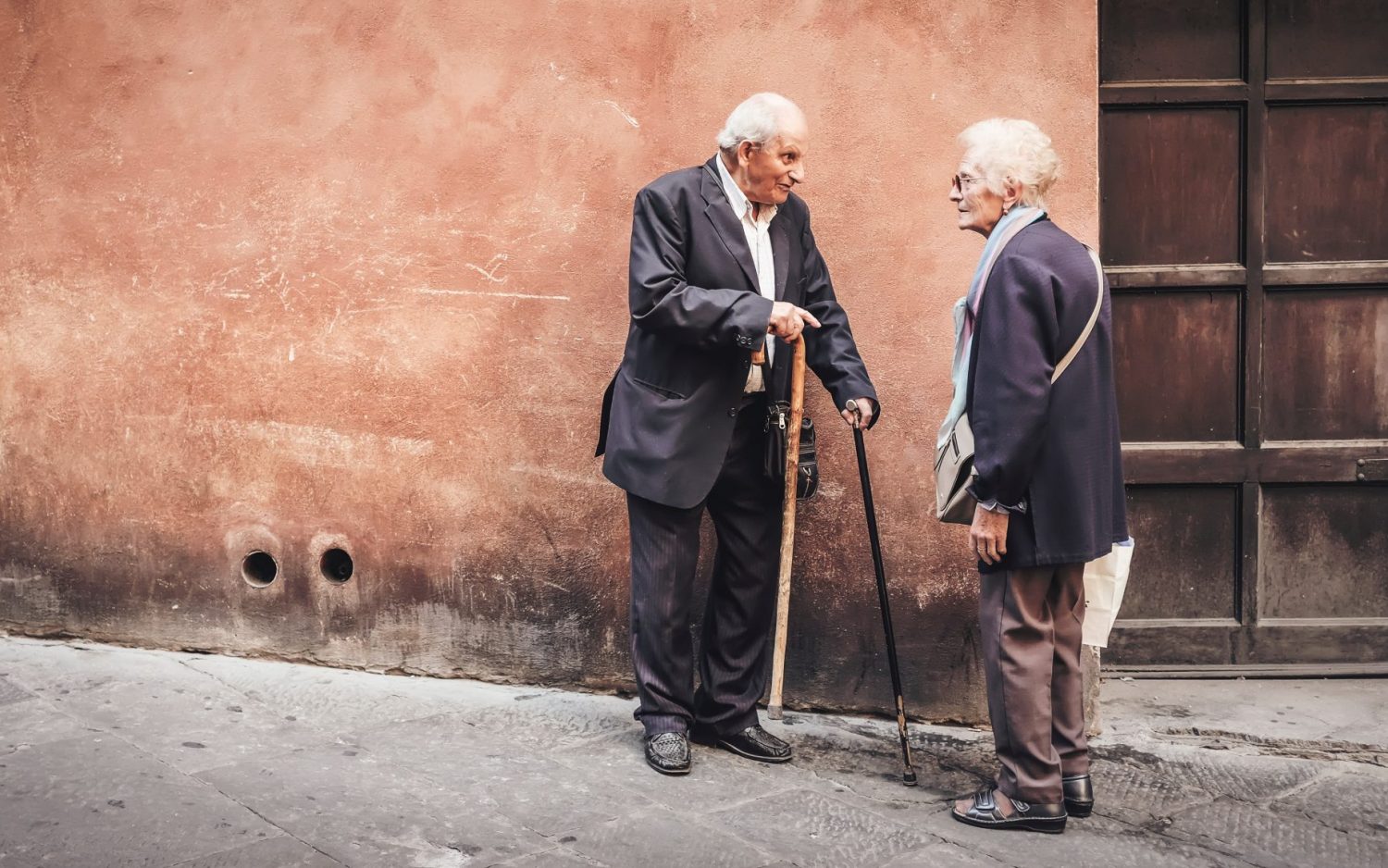Sustainable Health Systems in an ageing Europe: an interview with Birgitta Sacrédeus

Photo: Birgitta Sacrédeus
In October 2019 the Committee of the Regions (CoR) issued an Opinion on Active and Healthy Ageing, which highlighted the need for preventive action and the crucial role that new technologies play in ensuring active and healthy ageing of European citizens.The CoR works closely with the regional and local political actors to consult the European Commission. It provides opinions on various policy areas that directly affect the local and regional authorities.
The Opinion was drafted and issued by the rapporteur Birgitta Sacrédeus (Kristdemokraterna/European People’s Party), a member of Dalarna County Council in Sweden. The AAL Programme invited Mrs. Sacrédeus to an interview to discuss this Opinion and the latest developments in demographic change, as well as her takeaways from working with health system challenges both in the Committee of the Regions and her native Sweden.
Mrs. Sacrédeus has a long-standing experience in Swedish politics and has actively been working with the challenges of ageing and other public health-related issues in the County of Dalarna. She has been particularly interested in emerging technologies for ageing-related policy management, and she has stressed the importance of public health suggesting that “increase in healthy life years is one of the main goals of the EU’s health policy, as it would not only improve the situation of individuals but would also lead to lower public expenditures.”
Sweden is no exception to the consequences of the demographic change: similarly to the rest of the European countries, it is experiencing a great increase in the proportion of adults over 65, reaching 20% of the population, and this number is projected to continue rising. According to Mrs. Sacrédeus
“it is the local and regional authorities can reach older citizens and help them to sustain and prolong healthy life expectancy. These authorities can also develop innovative cooperation across jurisdictional boundaries in order to provide greater support for person-centred care solutions using integrated healthcare arrangements.”
The European Framework Programme: health and well-being
Mrs. Sacrédeus also sees a place for more holistic approaches in dealing with ageing societies. For example, through acknowledging the importance of well-being, which potentially includes more diverse set of concerns, such as work life, hobbies and mental health.
“Well-being,” she says “is one of the cornerstones of the EU and a common European value. In the economy of well-being, public resources are allocated for improving people’s well-being, which means that people are healthier, more innovative and productive, and they work and pay taxes”, also adding that there are other aspects directly impacting one’s well-being, such as loneliness, which should be seen as a key issue affecting many European citizens. Which is why, she continues, also the upcoming Horizon European Framework Programme should pay attention to
“digitalisation, which offers unprecedented opportunities for health and care. The European Commission should promote the alignment between European, national and regional digital plans, strategies and funding that is necessary in order to complete the large-scale roll out of integrated, digital and person-centred healthcare services.”
Digital Technology : an opportunity to remain independent
Both, in her work in Brussels within the CoR and in Sweden as a regional politician, Birgitta Sacrédeus has illustrated two key pillars addressing the demographic change and creating coordinated responses to an ageing population, namely, the importance of prevention mechanisms and the increased use of digital technology.
“I have learnt that health is wealth. You have to have healthy people to have wealth in a society.”
According to Mrs. Sacrédeus, prevention of age-related health complications plays a major role in ensuring safe environment in homes and cities and being able to retain mobility, in particular. Through the use of both mechanic and digital tools, ensuring that people can do what they want to for longer is a key factor for a better well-being of society. Another way of looking at prevention, is to preserve the ageing population’s ability to work. “It is very important people can work as long as they want to.”
Home care & digital solutions
Healthcare both in hospitals and at home is already under strain in many countries, and the CoR opinion asked for a stronger cooperation with nurses and other healthcare personnel in dealing with this.
One important aspect is shortening the time spent in hospitals. One way for achieving this is to make sure that home environments remain friendly. On the other hand, with the assistance of technology, it is possible to alleviate some of the challenges in hospital care. Mrs. Sacrédeus sees multiple opportunities for the exchange of data between patients, health professionals and home carers, facilitating a shift from institutional to community-based care. At the same time, she says, it will give “individuals more opportunities to make informed choices and decisions on their own care.”
One of the ways to promote the use of digital technologies in older adults’ homes, and generally to make them safer, is via special initiatives for showcasing the solutions in a home environment. For example, Mrs. Sacrédeus highlights a project in Dalarna, “Smarter homes is a show-flat with smart solutions for an independent and safe living for old adults, 65+, where new products are exhibited in a home environment.”
Video: Smarter Homes in Dalarna
Having visited this apartment, Mrs. Sacrédeus also notes that these houses are a great opportunity, because of “ the need of sheltered housing for older people, who are too healthy for secure housing but who want more security and social interaction. It is a process that is increasing along with the need for secure housing, which is a challenge for the municipalities.” Thus, she highlights, through activities such as Smarter Homes initiative,
“we consumers, are more and more informed when it comes to silver market.”
Missing piece on the debate
An ageing society brings across several other challenges and opportunities for industry, for the pension schemes, labor market and politics in general. But it is not only the older adults themselves, who are affected. Mrs. Sacrédeus argues that a major group of actors are missing in the discussions on the ageing society today, namely the role of informal carers.
“Families are affected, and step in, when the health system cannot. If there is no support for the family, it can lead to more sick people,”
Mrs Sacrédeus argues. The unintended consequences can also lead to stress for families, which in worst-case scenarios can even lead to violence against elderly, as seen in cases around Europe.

Photo by Dominik Lange on Unsplash
In Dalarna, there have already been attempts to address this through providing free time and support allocated for family carers. However, this discussion has not gained prominent place in the Committee of the Regions. “I think with informal carers we need to do more,” Mrs Sacrédeus says.
Political leadership is the key
The County of Dalarna has been particularly focused on ensuring care all ages, by participating in international projects to foster the silver economy, and digital change is discussed on a political level, thus raising the awareness of both decision-makers and older adults themselves. This example has shown that there are plenty of products present to commercialize, but the silver economy is only in its infancy, and it does need support to reach the potential customers of the already existing and upcoming products. “I think you have to have a horizontal view on this issue, you cannot have it in silos, (…) we do our best, but we all have to work together,” Mrs. Sacrédeus concludes. Coordinated political leadership is a key to a systematic and focused response to the major demographic shift taking place in Europe.
Are you interested to know how to finance your ideas for a better and more inclusive ageing in Europe? Visit our Info Day!

